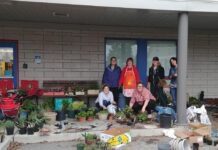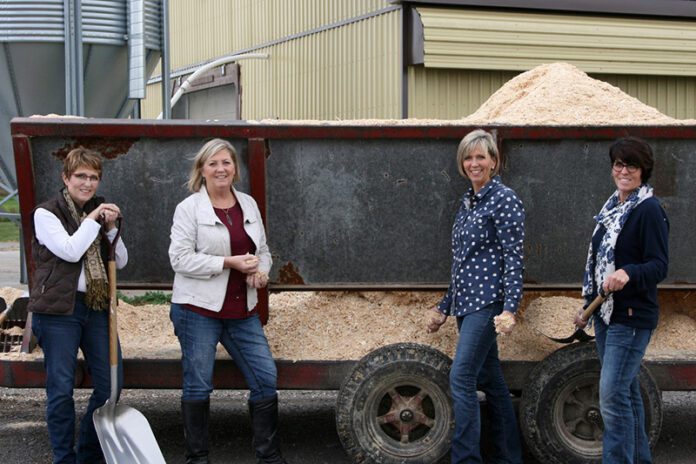By Catalina Margulis
Although Debbi Conzelmann and her three sisters were born and raised on their family farm in Stouffville, Ontario, they did not intentionally plan on going back to the farm once they went away for school. Little did they know what successes and victories were headed their way.
Debbi’s grandparents started the farming business in 1951. During high school, her father Bob dropped out to join the family business, which is when they started farming ducks. The farm continued to grow, with the family driving out to the North York farmers market every week to sell their chickens and ducks. When the ducks started selling out every week, the family decided to specialize in them, taking the business from a few thousand ducks a year to now 2.5 million per year.
“We all grew up working on the farm,” Debbi shares. “All of us sisters went off to university/college and didn’t plan on coming back, except for my sister Jackie, who went to the University of Guelph for agriculture. The rest of us were on different paths.”
Debbi finished school with hopes of becoming an accountant but realized she did not enjoy it. At the same time, she was needed at the farm because the family’s main bookkeeper had become ill and was unable to work.
“We all ended up back here,” Debbi says. “It’s not even a job; it’s who we are. It’s our identity, our lifestyle.”
Eventually, Debbi moved into the family’s sister business, a farm supply company, and became the general manager there, running a small team that included HR, finance and operations.
“It gave me a micro business and I had everything in that role. I was there 26 years,” she shares.
In 2003, after the SARS outbreak, there were a lot of business challenges, so they brought in an outside turnaround person who assessed the viability of the business and supported them with strategic plans and directional strategies. He stayed with them for two years.
“It was hard, because a lot of things had to change,” says Debbi. “We really had to assess our properties and assets and make hard decisions. It was difficult having someone from outside. Some mistakes were made, but it also opened up a lot of opportunities.”
Around this time, the second generation retired, and the third generation—Debbi and her sisters [Patti, Jackie and Robin]—took over. The family also discovered their own best practices, decisions that made sense not just from a business and financial standpoint, but also because they were anchored in the family’s deep beliefs and values.
Those lessons and being forced to think differently served the business well after SARS hit, with Toronto being one of the main hot spots. The team came up with various strategies to protect and grow the business, including selling more duck products that were ready to cook, as well as offering fully cooked duck and smoked duck.
“We went down that path to create different markets—food service and retail—so if restaurants closed down, we still had our retail products and business. We also created geographical diversification, and started selling all over the globe, really,” Debbi says.
Planning for success
When it comes to reflecting on her family’s business success in recent years, Debbi credits qualities like vulnerability, openness and willingness to connect with others.
“Part of our success is our openness and willingness to connect with other people and go outside for help and advice, with different consultants who are experts in different areas. We’ll bring in people who know more than us in particular areas, people to coach our teams,” says Debbi. “Most of our team have come in as workers and moved in to middle management, so everyone has had to learn how to handle different situations, how to handle conflict and employment issues, and working with other producers and industries.”
Debbi points that although the industry is male dominated, she and her sisters have always felt welcome.
“In Canada, there is a respect and open mindedness to work with women,” she says, adding, “Girl power is really key at King Cole. A lot of our farm managers are women, because they tend to be more nurturing when caring for livestock.”
For women entrepreneurs everywhere, Debbi advises being open and putting yourself in uncomfortable situations. Continuous improvement and learning is key.
“It is important to be outgoing and make the effort to know your stuff,” she says. “Do good work and build a reputation in the industry; people will know you soon enough. People know people.”
Interestingly, while there are many opportunities within the agriculture industry, Debbi has found that attracting talent to King Cole has always been something of a struggle, even though she and her sisters have found the work to be very rewarding.
“The industry is lagging in a lot of ways, most of agriculture is more laidback, so there are a lot of opportunities for making changes and growing in the future,” Debbi says. “It doesn’t always appear to be a great career choice for people, but for the right person, it provides a great work/life balance.”





